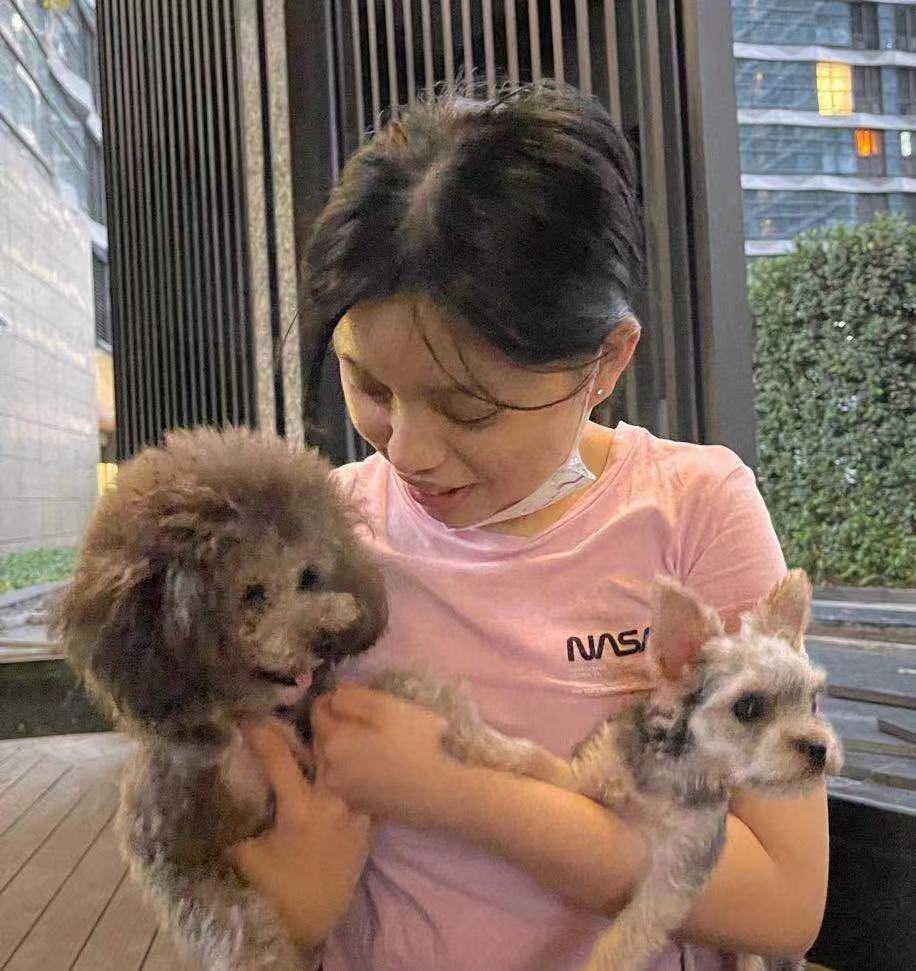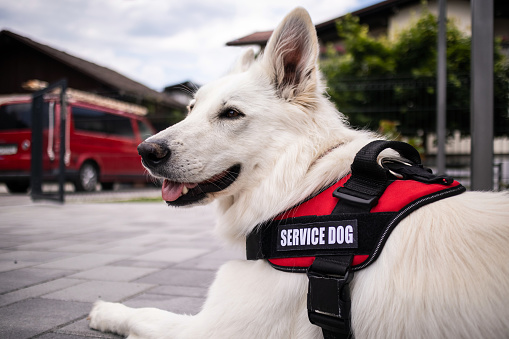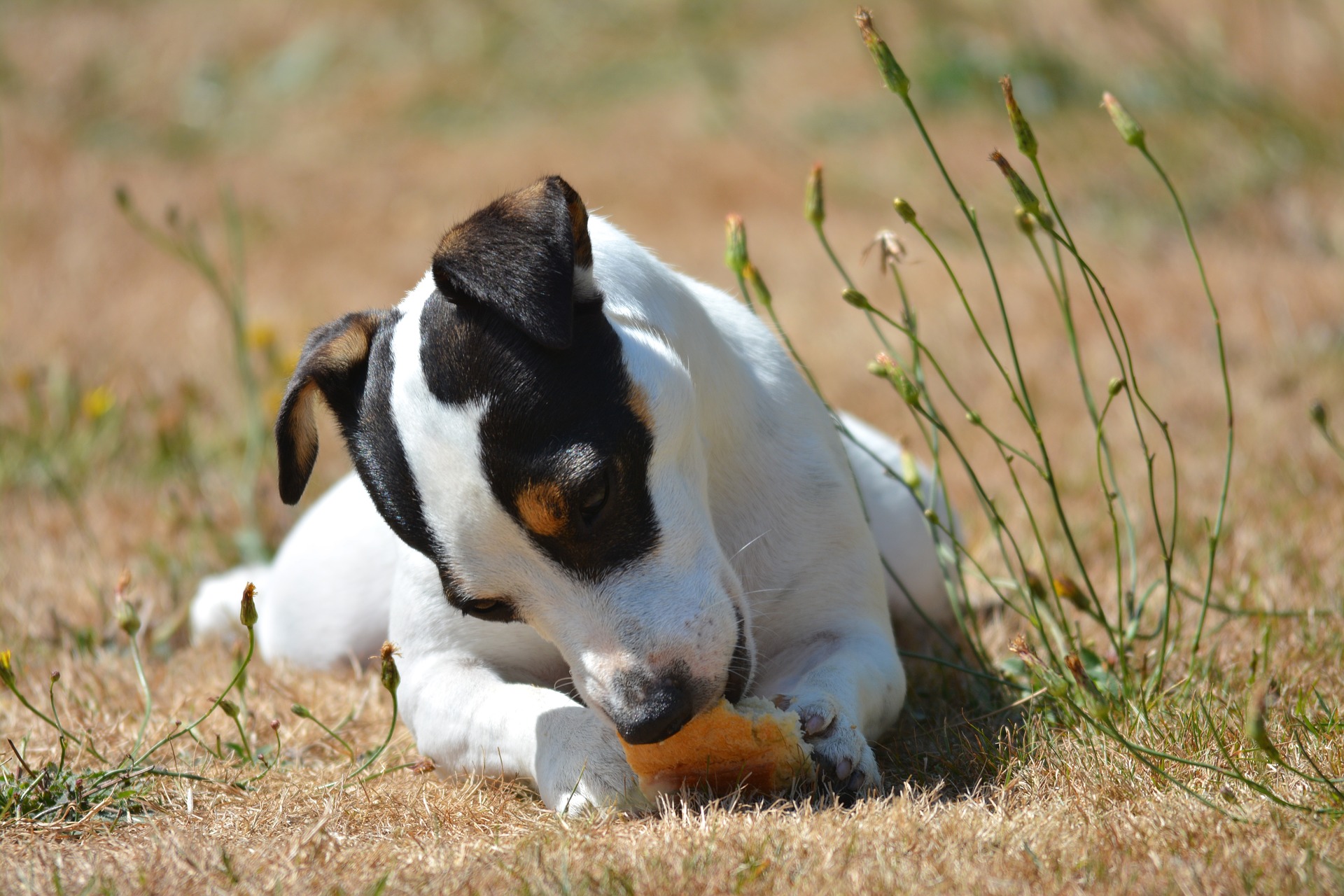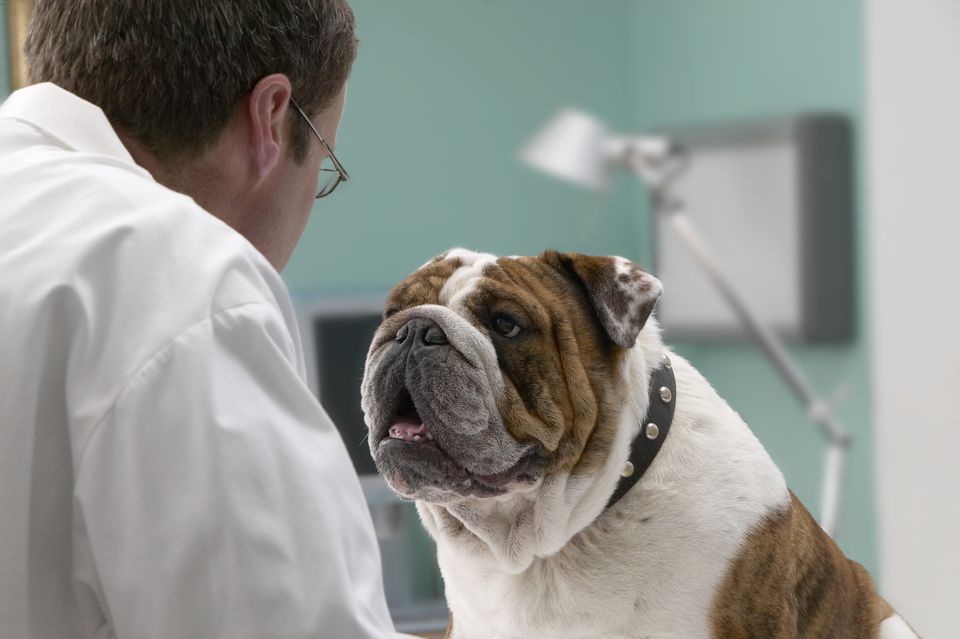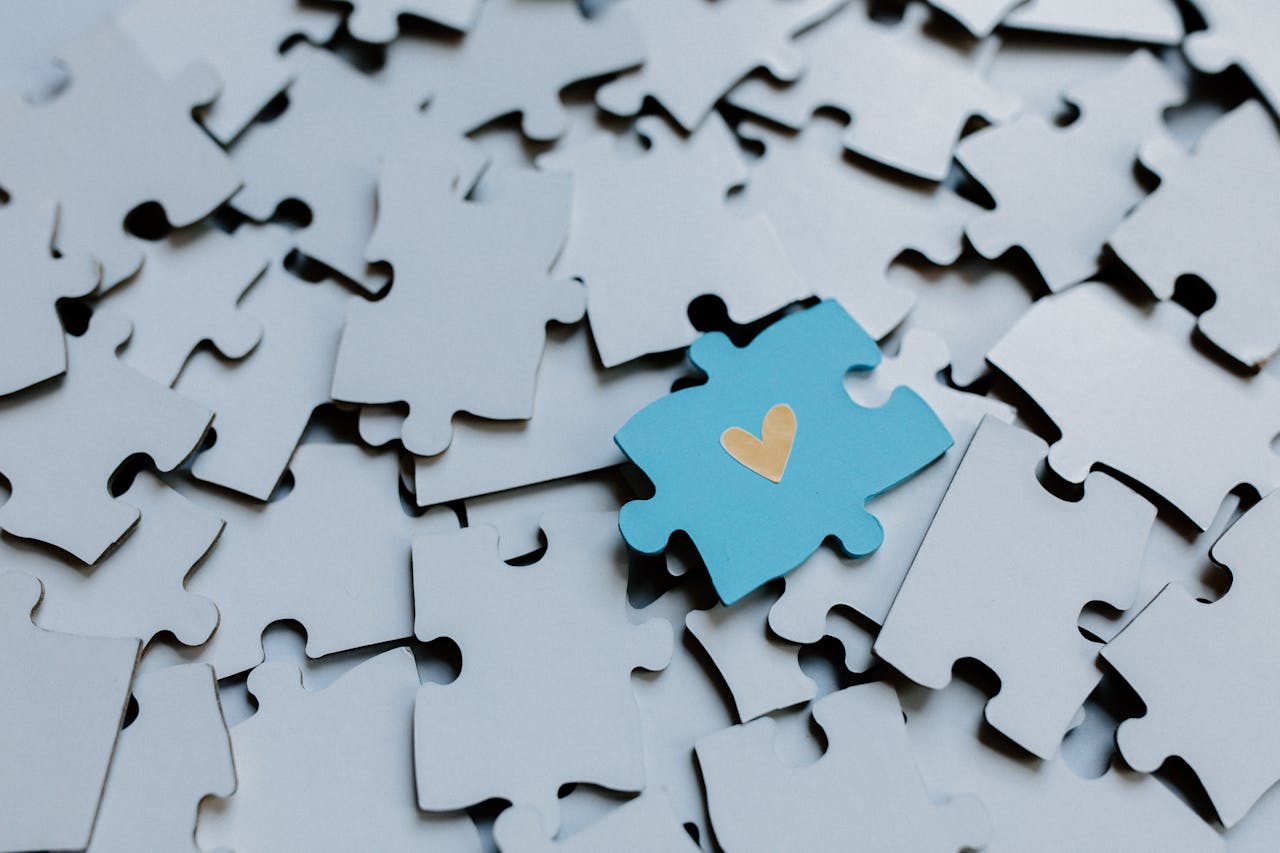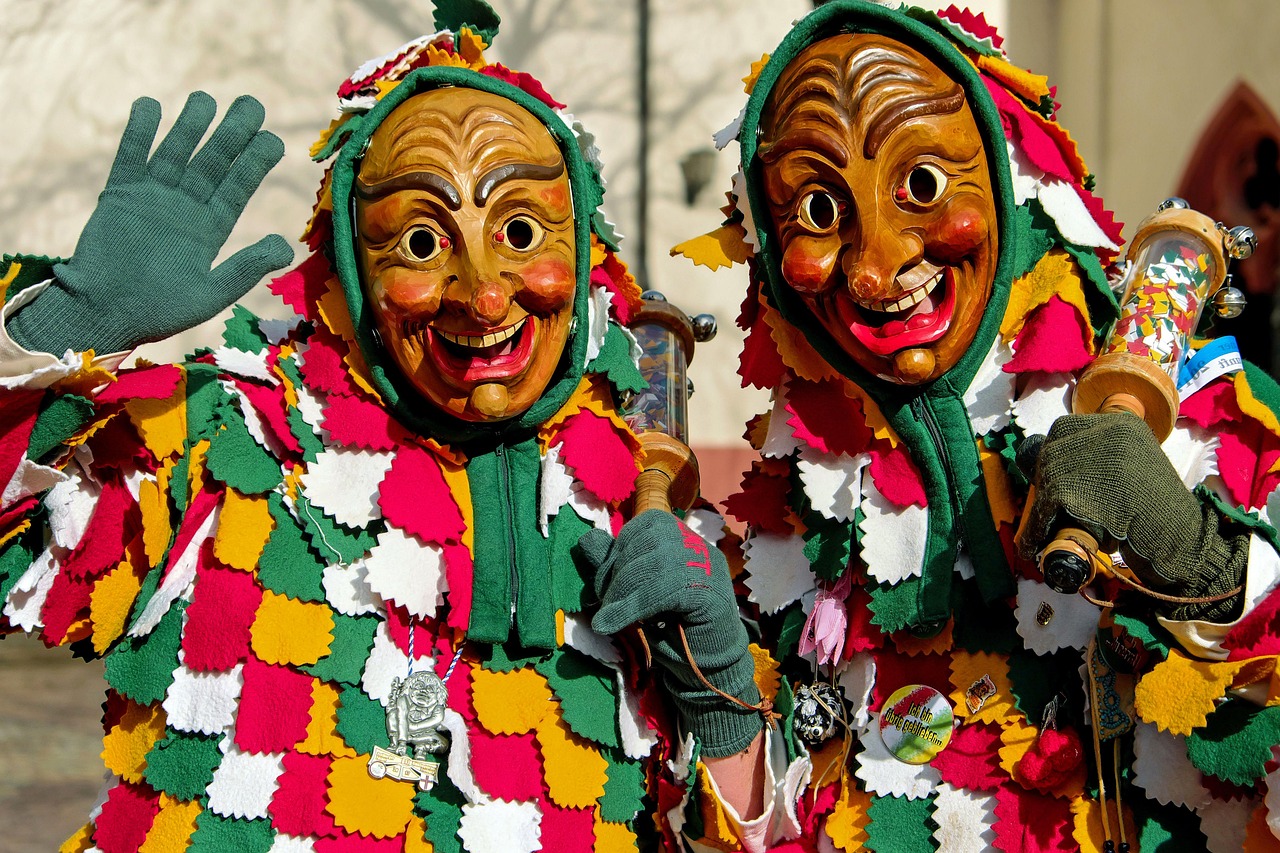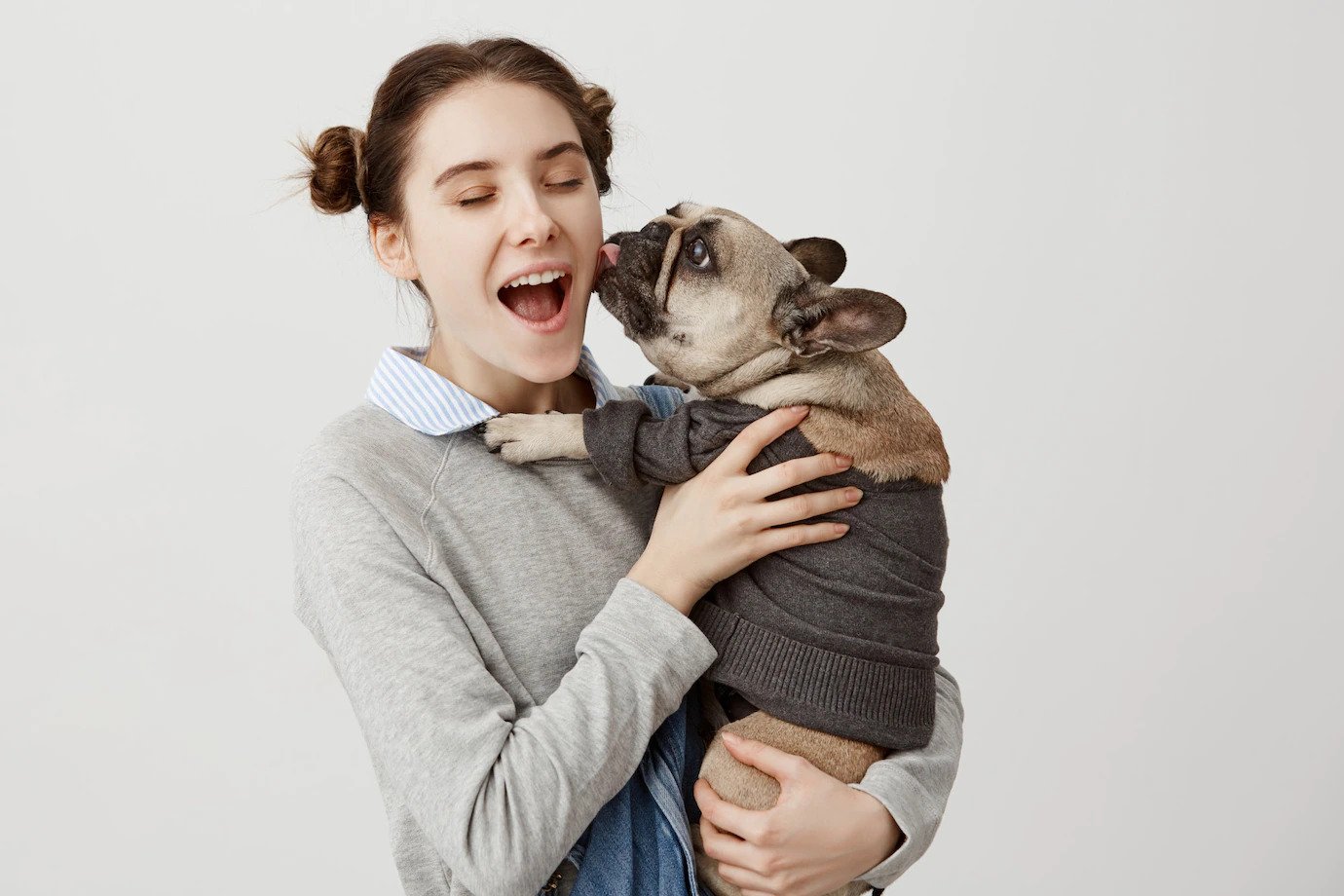
You may already know that the process of kissing causes a chemical reaction in your brain, accompanied by the release of oxyton- the so-called “love hormone”. It creates the feeling of attachment and affection. Since we have always associated kissing with positive feelings, we wish that it represents the same feelings in dogs.
When our paw friends come to us and lick our hand/face we are likely to become happier and think: “Oh, you are so sweet, and you love me!”, aren’t we? Why do dogs give kisses and have they anything to do with their attachment and love to us? We will give you answers to these questions in today’s article.
Survival Instinct
Licking, or “giving kisses” has its roots in the survival instinct in wild and domestic dogs. Licking is an essential communication tool between the mother and her newborn puppies. Through licking, she does not only clean her pups, but also stimulate their breathing and other important physical functions.
It is assumed that mothers strengthen their bond to their pups through licking, as certain hormones are being released during this process.
There is also another aspect of “giving kisses” in puppies related to their survival, that can be traced back to wolves. Wolf puppies used to lick their mother’s muzzle after she had returned from hunting, as they were still unable to chew. Licking is likely to be a significant part of the process of transition from soft food to solid food. Puppies licked their mother’s muzzle as a sign for her to feed them, so that she could regurgitate the food into their mouths. This “approach” is still common for the modern dogs.
Exploring
Sniffing and licking are common “tools” for environmental exploration. Our paw friends use not only their great sense of smell to gather information from their surroundings, but also their tongues.
Sign of Submission
“Giving a kiss” may have another meaning, important for keeping the order in the pack. More dominant pack members tend to receive “kisses” from the subordinate members as a sign that their dominance has been accepted and respected. This sign of respect is crucial for the pack to survive and for the harmony in it to be preserved.
Lack of Activity
Do you spend enough time walking your paw friend, exercising them, playing with them? As you may know, some breeds are more energetic than others and need a lot of mental and physical stimulation. If your dog has been actively “giving kisses” recently, they may need more mental and physical stimulation.
Attention Seeking
If a dog wants to get their owner’s attention, it does not matter whether it will be positive or negative. Even if your paw friend is quite familiar with the things they are allowed / not allowed to do (i.e. you do not want them to lick you on the face), they still may do it, just to get your attention.
Boredom
Boredom as a possible reason for our paw friend to give kisses, that is directly connected to the point above. Even if your dog’s general health condition is pretty good, you should not neglect their mental stimulation. Dogs, that get bored, may start exhibiting unwanted behaviors, and if not addressed in a timely manner, these behaviors may turn into bad habits. The earlier you realize how to properly raise and train your dog, the more behavioral issues you will avoid in the future.
Your Dog Likes Your Taste
You have been training since several hours, and you are sweating a lot... Your beloved friend comes to you and starts vigorously licking you. Yes, he/she still loves you, but the reason for giving kisses in this particular case might have to do more with your salty taste, than with their feelings to you. If you have eaten something that your doggy may want to explore closely, you may receive a big kiss from them.
Affection
We come to the point that you may have been expecting from the beginning. Your dog can actually show their attachment and affection to you through licking. “Give a kiss” is a common command used in Psychiatric Service Dogs training, applied to situations when the owner’s anxiety or depression has increased. Some dogs, especially when having a really strong bond to their humans, lick their owner’s face or arms, to calm them down. Our paw friends sense our emotional state and may respond to any changes in it, even without being previously trained. The stronger the attachment and physical contact with your dog is, the more frequently you may expect them to “kiss” you.
Stress or Underlying Health Condition
Too frequent and too energetic licking may be interpreted as a sign of an underlying health condition. In some cases, excessive licking may be caused by increased levels of stress. Possible reasons for high stress levels are:
1. Moving to a new home;
2. Rearranging the furniture at home;
3. Family member’s ha left the home or passed away;
4. Welcoming a baby;
5. Welcoming a new pet;
6. A certain sound / smell / person / object is being present and causes stress.
You should keep in mind, that any change in the environment, even if you perceive it as subtle, may drastically affect your dog’s emotional state. That is why you should try to gradually expose your dog to changes.
In general, we would say that what a dog’s kiss means, depends on the particular case. However, you should always monitor your dog’s behavior and contact a veterinarian, if you notice any changes, such as compulsive behaviors, drastically increasing/decreasing the energy level and changes in the appetite.

